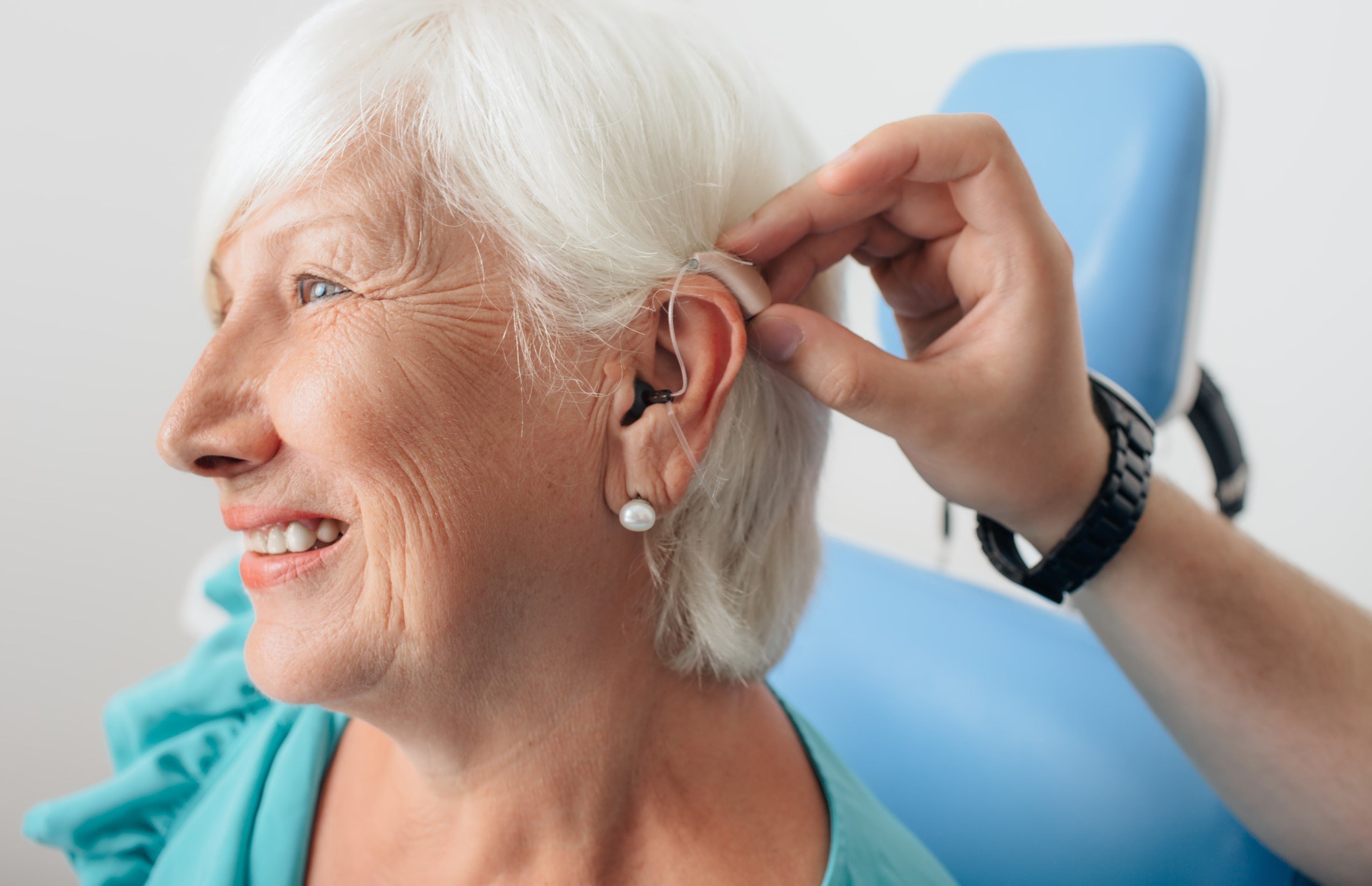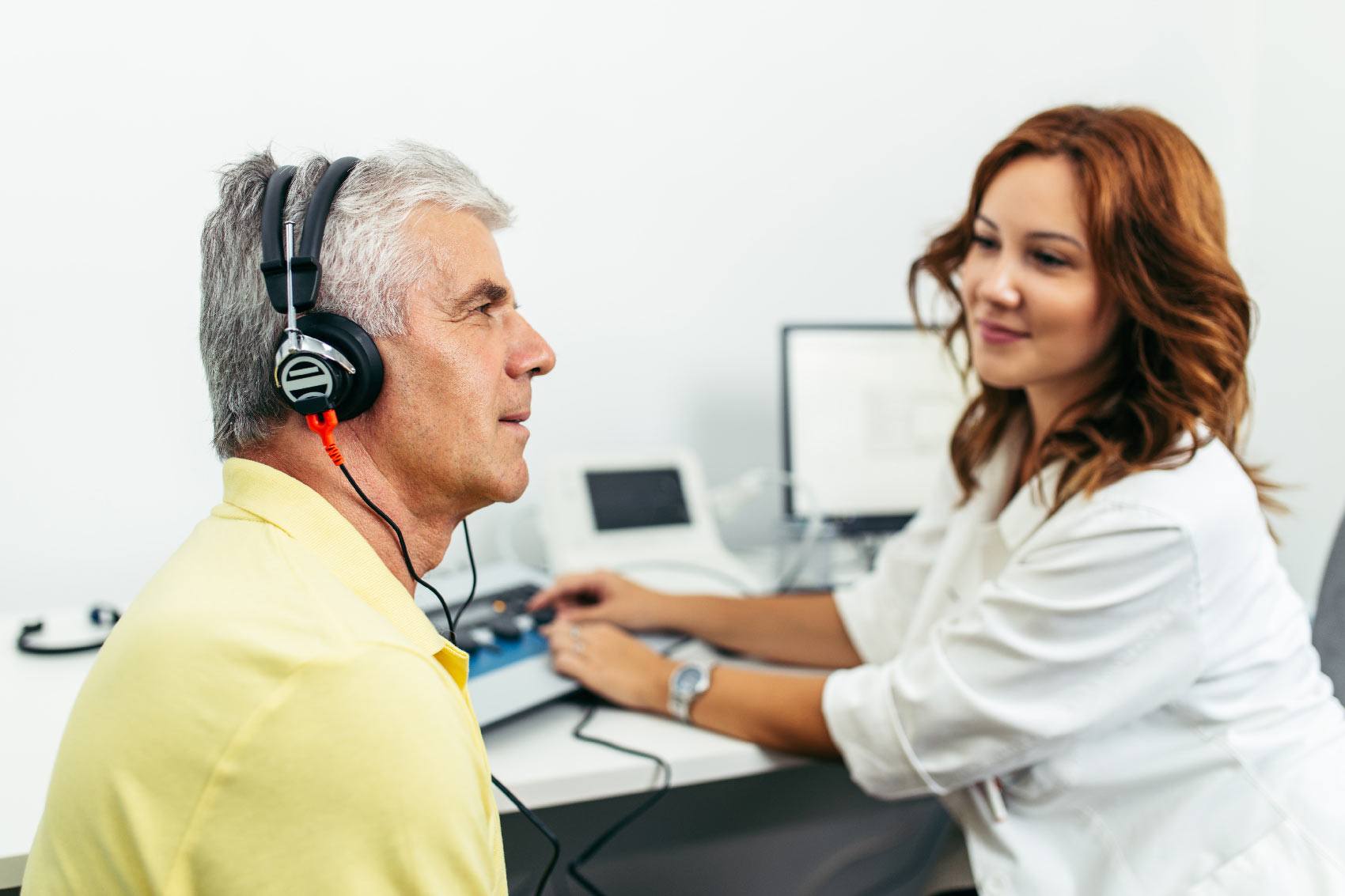Helpful resources related to
living with hearing loss:
Hearing loss may be part of your patient’s story, but it definitely does not have to define them from doing almost anything!
Need help independently evaluating and/or comparing types of hearing devices?
hearingtracker is the leading independent consumer review platform for hearing aides, hearing providers , and hearing centers.

Top 5 tips for supporting your loved one with hearing loss:
Encourage daily use of hearing aids. Embrace the positive quality of life they add to your loved one’s life and your relationship.
Try not to initiate important conversations when your loved one is not wearing hearing aids. Unheard or misheard words can lead to poor communication.
Learn how to turn closed captioning on with your television. It helps tremendously.
Know what size battery the hearing aids need and keep extras around your house, car, and other places your loved one might need them.
Take note of what environmental settings are challenging for your loved one and try to avoid them or make helpful adjustments for example car windows down, noisy restaurants with bad acoustics, places where sounds bounce around like gymnasiums, and places where hearing aids can get very wet unexpectedly.

Important information for advocating in school settings for children/teens with hearing loss:
Not all teachers have had the opportunity to work with a student with hearing loss. Most will welcome your input on how best to help your student succeed. This gets more complicated when your student is a teenager and encouraged to advocate for him or herself at school. For this reason, it’s important to get a plan in place and have a hearing specialist on your team as an advocate in all school settings. With an identified hearing loss, your student should have an Individualized Education Plan (IEP) or a Section 504 Plan developed with the school’s administration to document any specific communication accommodations such as sitting up front near a teacher and/or away from background noise, and use of closed captioning with video.


An educational audiologist will be able to communicate and coordinate with classroom teachers to make sure they understand any issues to be addressed or accommodations to be made. This takes the pressure off you and your student having to communicate these needs to teachers and administrators. This could include the use of an FM or other amplification system. For many students, though hearing aids are very effective, they may not address all the “functional” needs at school. Students may not be aware of how much background noise or other factors interfere with their ability to hear everything properly in a learning environment. Encourage the educational audiologist to perform a “functional hearing test” for your student at school. If your school/district does not employ an educational audiologist, your child’s pediatrician, primary audiologist, or ENT can help identify someone.
It’s important that you and your child know that you are not asking for any special favors from the teacher or school. Federal law requires schools to provide all students with access to the educational environment and to incorporate accommodations and modifications for students who need them. Federal special education laws have supported the need for audiology services in schools for almost 40 years. Don’t be shy! This is critical for your student to succeed academically.
